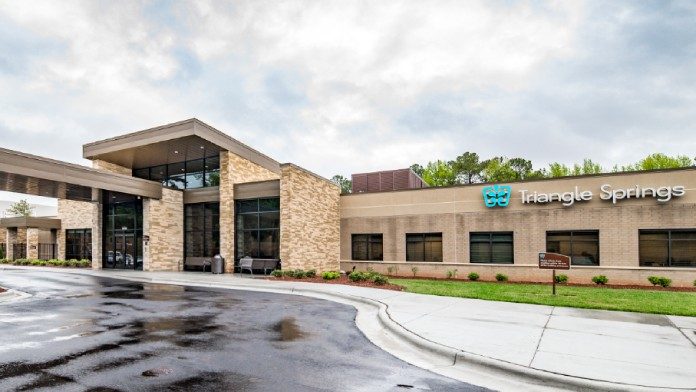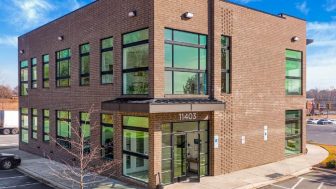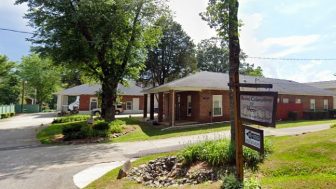Triangle Springs
10901 World Trade Blvd
Raleigh, NC 27617
Raleigh, North Carolina
919-746-8900
Get Help Now - 919-205-2995
 Who Answers?
Who Answers?

Addiction Treatment Programs
Alcoholism
Drug Rehab
Alcoholism
Alcohol rehab in North Carolina is a course of treatments that helps participants overcome alcohol dependency. Treatments address physical, mental, and emotional aspects of substance use disorder and help the individual develop healthy habits for long-term recovery.Drug Rehab
There are many types of drug rehab in North Carolina. To receive treatment for addiction, you can choose from many inpatient and outpatient programs. Often, participants start with detox and work through a full continuum of care that continues with ongoing support for long-term recovery.Levels of Care
1
Detox & MAT
Nearly all drug rehabs in North Carolina begin with a detox program. When this process is complete, all addict...ive substances will be purged from your body. You can then move on to the next steps of drug rehab in North Carolina.Read More
2
Inpatient Rehab
When you choose inpatient drug rehab in North Carolina, you’ll live at a rehab facility for 28 to 90 days, d...epending on the program. Typical methods of treatment include group and individual therapy and family counseling.Read More
3
Outpatient Rehab
Outpatient rehab in North Carolina is often the next step for those who complete an inpatient program. This le...ss restrictive treatment involves several hours of therapy per week, and accountability through 12-step meetings such as AA. You’ll continue this treatment as long as needed, which could be weeks, months, or years.Read More
Insurance
 Private Insurance
Private Insurance
Your insurer may help cover the cost of alcohol and drug rehab in North Carolina. The amount covered will depe...nd on your policy and whether the treatment center is in-network or out-of-network. You may be left with some costs like a co-payment, or co-insurance. Check with your insurer for more information.Read More
 Self-Pay Options
Self-Pay Options
In North Carolina, you have the option to take charge of your treatment costs and pay out-of-pocket, known as ...self-pay or private pay. Paying for alcohol and drug rehab in North Carolina, you to access all levels of care — including detox in North Carolina, and inpatient rehab in North Carolina —without being subject to the limitations of your insurance provider.Read More
Contact Triangle Springs




